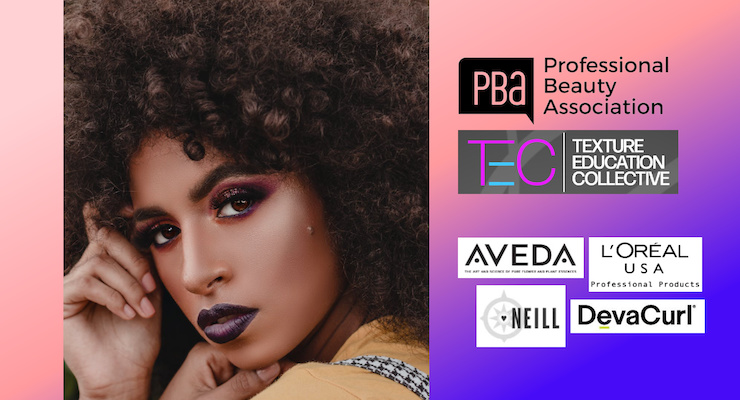08.09.23
The Texture Education Collective (TEC)—an alliance of professional hair industry leaders working together to influence cosmetology state board licensing requirements and curriculums—has announced a new bill expected to pass in New Jersey.
The Professional Beauty Association (PBA) formed the TEC, along with founding partners—Aveda, DevaCurl, L'Oreal USA Professional Products, and Neill. Supporting partners include Bumble and Bumble, Living Proof, Paul Mitchell, Ouidad, and others.
The bill, numbered A5443/S3845, promotes inclusivity in professional beauty by requiring cosmetologists, hairstylists, beauticians, barbers, and hair braiders to complete training on textured hair.
New Jersey's Assemblywoman Angela McKnight and Senator Teresa Ruiz are sponsoring the bill. "As I said when I introduced the Crown Act, no one should be penalized for the way they wear their hair or the way it grows out of their head. This bill requiring cosmetology training to include textured hair will help stylists and patrons," says McKnight.
"Most schools have never taught how to care for natural hair, so stylists often turn away clients with textured hair or charge a higher price. Now, stylists will not feel intimidated because of a lack of know-how, and patrons don't have to fear being turned away. This bill is a huge step for inclusion," McNight adds.
Textured hair is defined as hair that is coiled, curly, or wavy. Hairstylists should be trained to work on various curl, coil, and wave patterns, as well as thick and voluminous textures.
The PBA and TEC are asking for signatures—over 11k have signed the petition to include textured hair in cosmetology testing standards.
The Need for Inclusivity in Professional Beauty

TEC's graphic shows the need for more inclusivity in professional beauty. Sixty-five percent of the world's consumer population have textured hair—it's a market that's 1 billion strong.
Here's more facts, according to PBA and TEC:
- 75% of stylists want more training in how to style textured and coily hair
- 66% of BIPOC high-fashion models have had to work with a hairstylist unexperienced with their hair texture
The goal is to ensure all hairstylists are equipped with the education, skills, and tools to be able to service all clients—and all hair types and textures.
Photo of model by Pexels/Marlon Schmeiski













